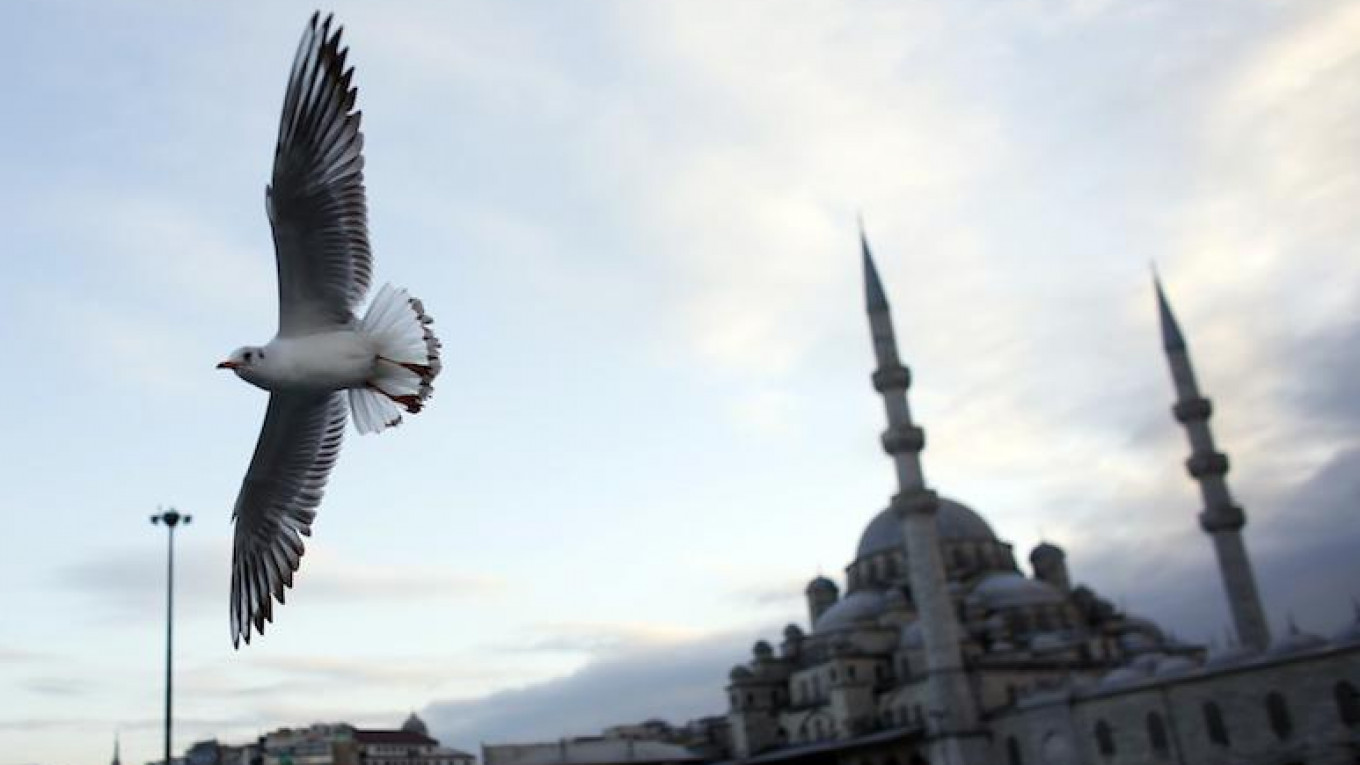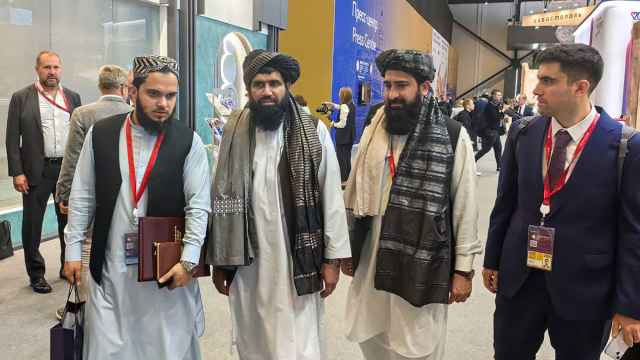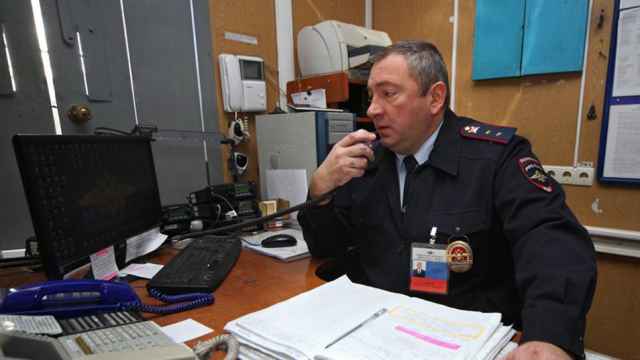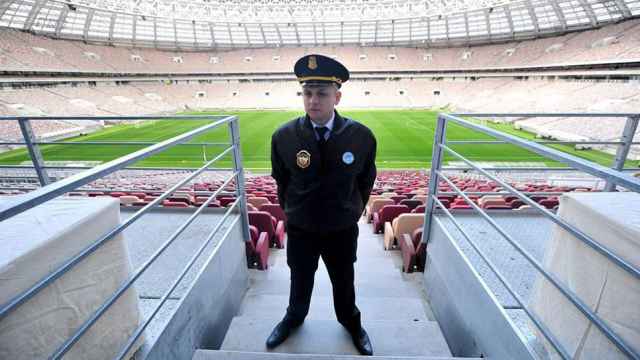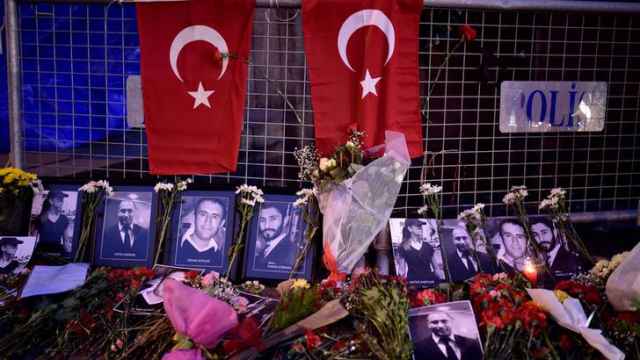ISTANBUL — Veronika is not her real name. Covered from head to toe, her only identifying features are a nervous laugh and a quiver of breath that ripples the black fabric of her veil. She says she is from Chechnya.
She is risking her life to speak. The Islamic State* does not take kindly to criticism, and the “sisters” in Syria know where she lives. Every time she changes her phone, they track her down; they have “the best hackers” in the world. If they found out she’s been speaking, they’d kill her.
And yet she speaks. She speaks of the fourteen months she spent in the Islamic State. She speaks of the death of her husband who had taken her there. She speaks of the terror. She speaks of the weekly hangings at public squares. Of the children that watched and took selfies; of the emotionless fighters on drugs; of the initially futile attempts to escape; of how she was eventually smuggled out for $2,000. And of the “many” still looking to escape.
“I was fortunate; there is usually no way back,” she says. And this is the reason she speaks: to warn other Russians against repeating her mistake.
The confession stops dead when a bearded man appears and begins to stare intensely in our direction. “It’s OK,” she says after a pause. “I can tell if it is the Islamic State and that isn't the way they dress.”
Even three days before an attempted coup brought new instability to the region, the Russian-speaking pockets of suburban Istanbul in which we meet are on high alert.
Following the June 28 triple suicide bombing and attack on Ataturk airport — perpetrated, apparently, by Russian, Uzbek and Kyrgyz terrorists — these neighborhoods have repeatedly woken to dawn raids. Over three dozen people have been arrested and 17 have been charged; 11 of these are originally from the Russian North Caucasus. “Most of those arrested are Islamic State people,” Veronika says. The names were apparently well known to the authorities.
The fallout from the airport attack has coincided with a detente in relations between Turkey and Russia. This has spooked many of the North Caucasian diaspora in the city. Several thousand people left Russia to escape what they consider to be persecution — and, in many cases, prosecution. Up until now they had considered Turkey a safe haven.
This may be about to change. With the number of terror attacks in its cities rising, Turkey may well become impatient with its Caucasian residents, and look more kindly on Russian requests to extradite them.
The Islamic State knows this, says Veronika. “The only reason the Islamic State has begun targeting Turkey is because it is losing. It wants the Turks to lose patience, clamp down and provoke Caucasians to join the caliphate in Syria.”
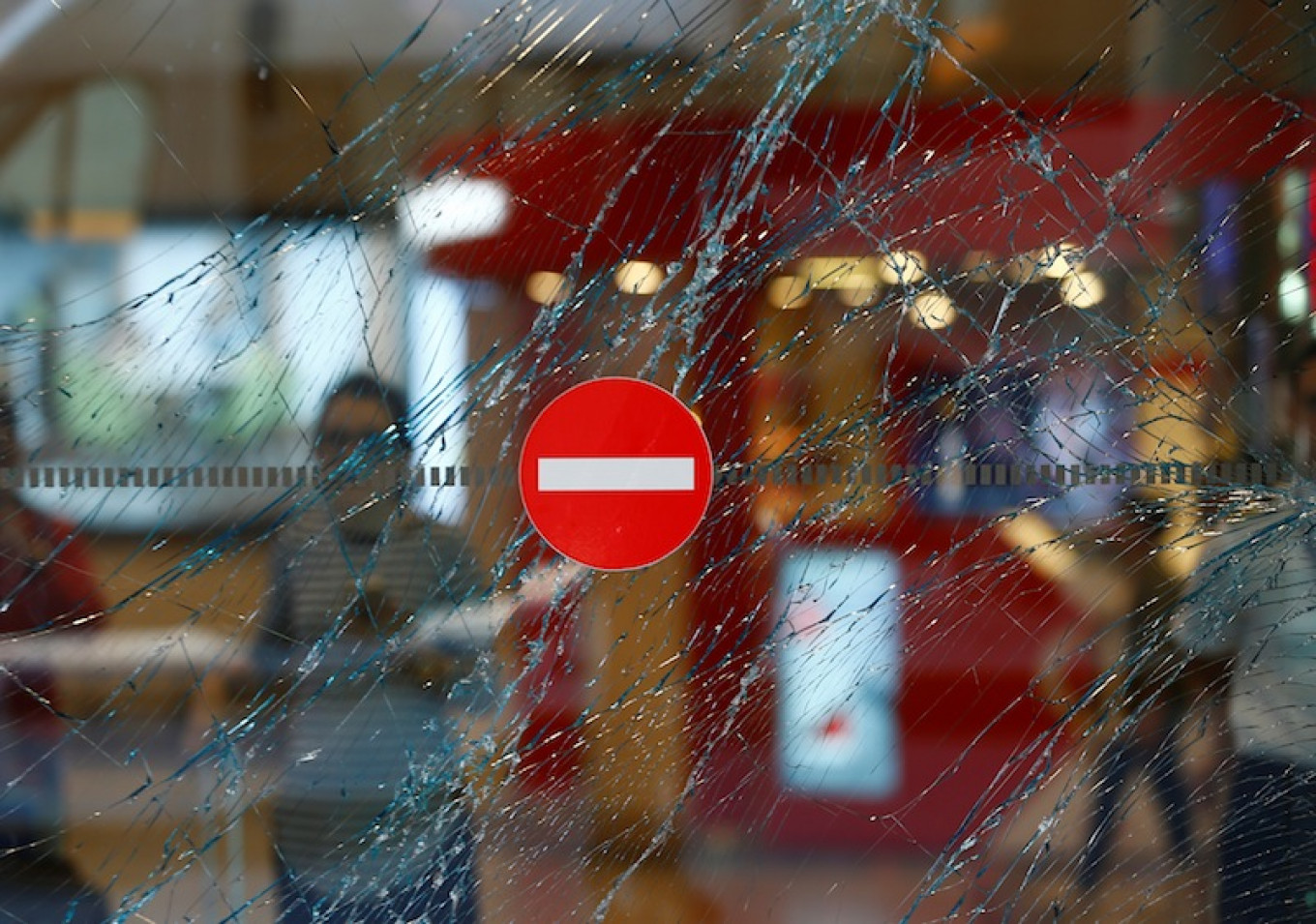
The New Muhajirs
Muslims from the present-day Russian North Caucasus have settled in Turkey since at least the 19th century. Usually, these migrations have been enforced; often they have been traumatic. At the start there were Circassians, who survived expulsion from their homeland at the end of the Russo-Circassian war in 1864. More recently, political and civilian emigres have arrived from the two Chechen wars and a separatist-turned-Islamic insurgency that ravaged the region in the 1990s and early 2000s.
In the last few years, a new wave of migration hit Turkey. To some extent, these new emigres — known across the muslim world as muhajirs — were driven by the activities of the Russian security services. In advance of the 2014 Sochi Winter Olympics, Russia clamped down on individuals and communities it considered linked to Islamic radicalism. Families and friends of known fighters were targeted, too. In the southern Russian republic of Dagestan, the more fundamentalist Salafi school of Islam came under particular pressure.
Russian security services remain adamant that the emigres were radicals, many with links to the Islamic State and other extremist formations. These claims are not entirely without merit. According to the figures of the Turkish General Staff, of the 913 detained for suspected Islamic State links in 2015, 99 were of Russian origin. At the same time, it seems not all those who left Russia for Turkey were interested in jihad. Some, quite possibly the majority, saw the trouble all around them — the disappearances, the persecution — and just wanted a normal life.
Wanted Men
The spa town of Yalova, a one-hour ferry ride from Istanbul, has provided refuge to a significant part of the male population from Gimry, a village in the Dagestani mountains, 48 kilometers from the capital Makhachkala.
The birthplace of two legendary religious leaders, Imams Gazimagomed and Shamil, isolated Gimry (population 6,000) has for centuries played a leading role in anti-Russian insurgency. In the post-Soviet vacuum of the early 1990s, it became a hotbed of religious militarism, leading to full-scale jihad by the turn of the century. In the 2000s, Gimry was one of the main centers of the so-called Caucasus Emirate, a terrorist organization affiliated to al-Qaida.
After first toying with control and containment, Russian law enforcement imposed a full cordon around the village in 2007. To this day, residents move in and out through a controlled barrier on the edge of town. Each has a number; no-one unknown to the security services is granted entry (tested by this reporter in February this year). According to locals, anti-terrorism operations have killed some 64 local men, most of them in the last three years.
Around 200 Gimry residents have reportedly left Dagestan to live in the Greater Istanbul area. Included in this number are people on Interpol lists, others on national wanted lists, and those alleged by Russia to have been involved in fighting in Syria.
Magomed Bartikhanov is one of the wanted. A distant relative of both of Gimry’s most famous Imams, Bartikhanov openly admits to having fought as part of the Caucasus Emirate, though the broad-set Dagestani says he has nothing to do with the Islamic State. His brother was killed in December 2005, in the first real anti-terrorist operation carried out in the village. Bartikhanov himself cheated death in January 2006 when federal troops attacked his hideout in woods about two kilometers from Gimry. “They employed 700 men against eight of us — four helicopters, rockets, mortars, machine guns — and pelted us so hard that they assumed us dead,” he says. “But we miraculously crawled out the next morning without so much as a scratch.”
The insurgent left Russia for Turkey in 2009, and no number of international warrants have brought him any closer to deportation. He says the Russian authorities just wanted to make his life difficult. “They know I have nothing to do with the Islamic State, and Turkey can see this too,” he says. He is not worried about deportation, no matter how good the relationship between Turkey and Russia becomes. “They don’t deport men being repressed on religious grounds, especially if he is a relative of Shamil and Gazimagomed,” he says.
Another man sitting alongside him, a 30-year-old currently listed by Interpol, says he assumed he was immune from extradition too. He did not seem as sure.
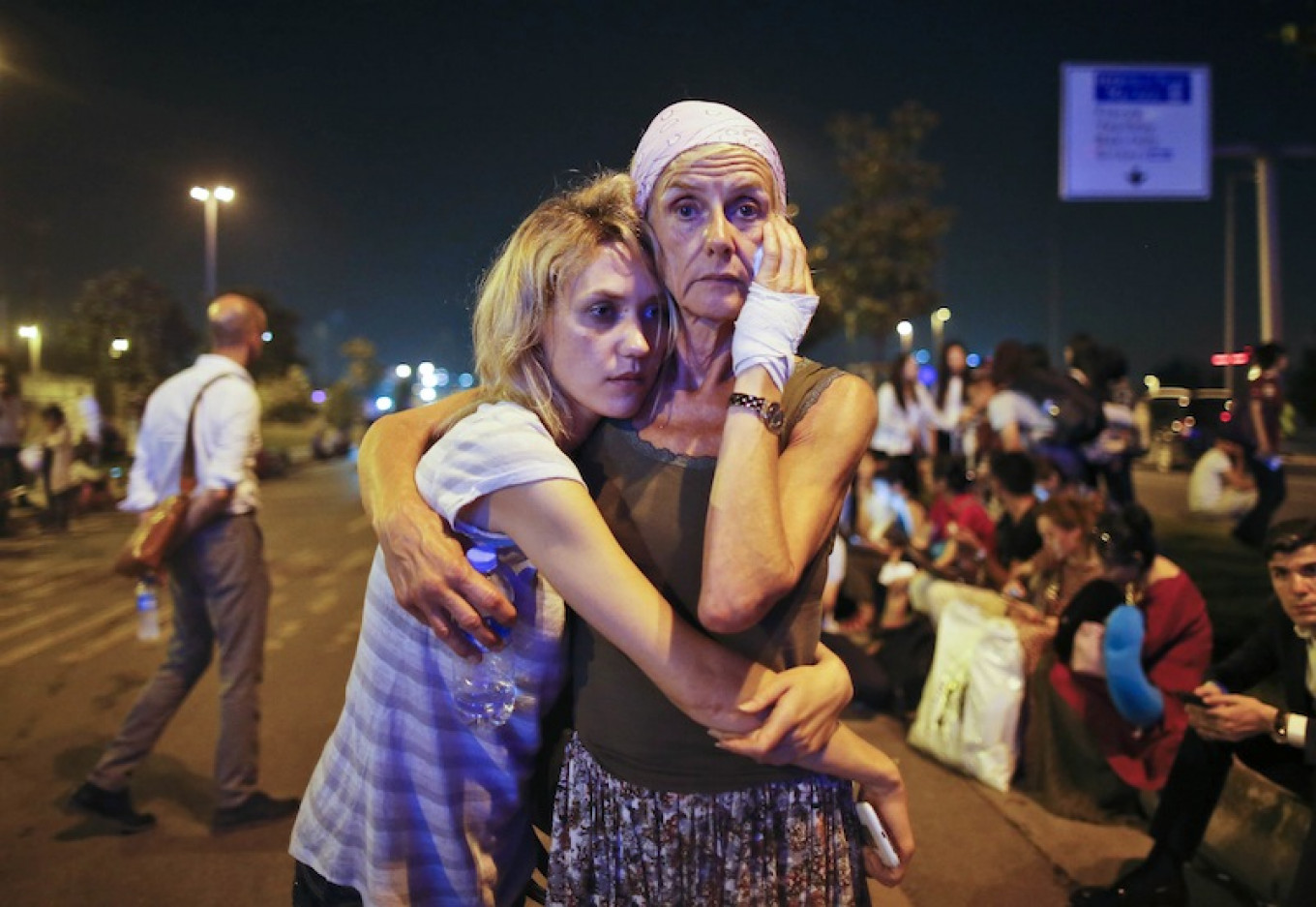
Conveyor Justice
Even at the lowest point of Russian-Turkish relations following the downing of a bomber plane on the Turkish-Syrian border in November 2015, some level of security cooperation existed between the two countries. The Russian authorities continued to issue their Turkish counterparts with “codes” of people wanted for involvement in international terrorism. Sometimes, the Turkish authorities would respond to the requests, arresting Russian targets when they tried to extend tourist visas or residence permits. Occasionally, “coded” men and women would be held in deportation centers for up to six months. Less frequently, they would be dispatched to a third country such as Ukraine or Georgia.
But the Turks always showed great flexibility. “They understood the arbitrary nature of some of the requests,” says Elnur Beketov, (not his real name), an exiled preacher from one of the smaller regions of the Caucasus. “Now this is in the balance. Turkey will try to prove loyalty to Russia and there will be an increase of those deported, perhaps even to Russia itself. The trend is already clear, especially given that none of those arrested in connection to the airport attack have been released.”
It is certainly not hard to come across cases that suggest Russian terrorism claims are often exaggerated. In Istanbul, this reporter was able to speak to two brothers accused of fighting in Syria between 2014 and 2016. Both are originally from Cherkessk, the capital of the Karachayevo-Cherkessia republic in southern Russia. Both have been included on national wanted lists, and both expect to be included in Interpol lists soon.
On the basis of the evidence, neither brother is a particularly convincing insurgent. Both were many miles from Syria during the time in question. One of the brothers, Tengiz Tambiev, a freelance translator, was able to provide banking details to The Moscow Times that seemed to demonstrate he was present in Istanbul rather than Syria. The younger brother, Burkhan, meanwhile, was seriously ill over at least part of the period he was supposed to have been fighting, and travelled between Russia and Turkey for regular medical care over a suspected brain cyst and eye disease. Again, The Moscow Times has seen medical records for this treatment.
Unusually for terrorism suspects, the Tambiev brothers have employed a legal team to fight the case at home. They do not anticipate any success. “There is gray between black and white among emigres here — sure, we understand that — but the security services should be able to tell who was in Syria, and who wasn’t,” says Tengiz. “The problem is I don’t believe they really want to know.”
Tengiz says he had thought being in Turkey was enough to avoid the worst. Now, he is not so sure, and is looking into other options of asylum in other countries.
“I understand [Turkish President Recep] Erdogan’s pragmatism — talking to Israel, Europe, Russia,” he says. “But I hope to God hope it won’t cost us our lives.”
They Keep Coming
“Whatever happens, going back to Russia is not an option,” says Ruslan Magomedov (not his real name). “Last year, five or six of our guys were deported to Russia and no one has heard from some of them since.”
Magomedov, a long time representative of the Chechen diaspora in Istanbul, is a veteran of both Chechen wars. Describing himself as on the political wing of Chechen independence (rather than pan-Islamic insurgency), he says he has little in common with many of the young Chechen men recently arrived to Istanbul.
“The youngsters have been radicalized by Russia, and this has increased after Russia got involved in Syria,” he says.
Preacher Elnur Beketov confirms that a generational split exists in the Caucasian diaspora, with young men lured by promises of wives, Sharia law and immense riches.
“There was one occasion when a friend called me from the airport,” says Elnur. “I understood what was happening, and asked him if he was on his way to the Islamic State, and he said ‘yes.’ I spent a while explaining how the Islamic State was not good by Islam, and I thought I had persuaded him.
But then he got a call from Syria from the widow of a friend who had just died on the battlefield. She told him that a three-bedroom apartment was now in the balance, and that was what swung it for him. He left the next day.”
Beketov is known locally for his work persuading ideologically vulnerable people against traveling to the Islamic State. He is not liked within the Islamic State, he says: “They said they wanted to assassinate me, but, as I was told, they were told they could not kill me outside the caliphate.”
In Russia, however, Beketov is seen as a recruiter, and is on a wanted list. Without a hint of irony, another government agency has been releasing his phone number to relatives searching for loved ones believed to be on their way to Syria. He says he has taken 50 such calls.
According to Veronika, as many as 7,000 are waiting in Turkey, ready to travel onward to Syria. “These are confirmed figures,” she says. “But for the last one and a half years there hasn’t been an easy route through.”
A clampdown by the Turkish government might push more people to make the journey into the war zone, and bring new people into the orbit of extremism.
Ruslan says the prospect of a crackdown has him worried — “of course I’m afraid about deportation, of course I’ve thought about it.” But with an out-of-date passport and extralegal existence, there are few options available.
“I guess that means I’ll end up in Syria," he says.
* The Islamic State and the Caucasus Emirate are terrorist organizations banned in Russia.
A Message from The Moscow Times:
Dear readers,
We are facing unprecedented challenges. Russia's Prosecutor General's Office has designated The Moscow Times as an "undesirable" organization, criminalizing our work and putting our staff at risk of prosecution. This follows our earlier unjust labeling as a "foreign agent."
These actions are direct attempts to silence independent journalism in Russia. The authorities claim our work "discredits the decisions of the Russian leadership." We see things differently: we strive to provide accurate, unbiased reporting on Russia.
We, the journalists of The Moscow Times, refuse to be silenced. But to continue our work, we need your help.
Your support, no matter how small, makes a world of difference. If you can, please support us monthly starting from just $2. It's quick to set up, and every contribution makes a significant impact.
By supporting The Moscow Times, you're defending open, independent journalism in the face of repression. Thank you for standing with us.
Remind me later.


